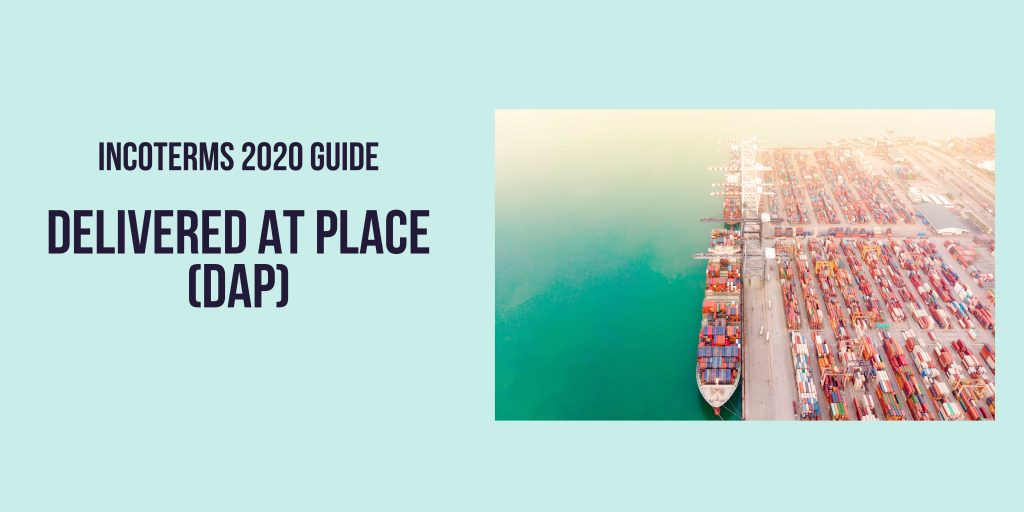The International Chamber of Commerce (ICC) has established Incoterms, or international commercial terms, to make global trade simpler. These universally acknowledged guidelines define the responsibilities of both buyers and sellers in international trade contracts and business deals. While some of these terms are applicable to all transport modes, others are exclusively for waterway shipments.
What Is Delivered-at-Place (DAP)?
Delivered-at-Place (DAP) is a term used in international trade for a deal where the seller covers all costs and is responsible for potential risks associated with transporting the goods to a designated location. However, once the shipment reaches its specified destination, the buyer takes on the responsibility for import duties, clearance fees, and local taxes.
–Seller is responsible for all risks and costs until the goods are delivered to an established location. These costs can refer to packaging, export permissions, handling documentation, or delivery charges.
–Buyer assumes the risk, including unloading and import clearance, when the goods reach the specified location.
DAP Obligations
Here is a list of key responsibilities of each party.
Seller responsibilities
Seller takes on most of the responsibilities when it comes to shipping under DAP contracts. This includes:
- Documentation: the seller is responsible for managing and obtaining all necessary documents, like commercial invoices or marking documentation related to the shipment’s export
- Licensing and customs: the seller is responsible for obtaining export licenses and handling of customs processes.
- Transportation: the seller must take care of pre-carriage of goods, delivery to the port, loading goods, as well as main carriage and delivery to the established destination.
- Costs: the seller must take care of shipment expenses and is responsible for any loss or damage that can occur during shipment.
- Proof of Delivery: upon arrival at destination, the seller must provide POD to the buyer
Buyer responsibilities
- Payment: the buyer is in charge of compensating the seller for the goods and must inform the seller of the final destination of the goods.
- Import duties: the buyer is responsible for handling all import-related formalities.
- Unloading: the buyer is in charge of handling all unloading processes.
- Costs: the buyer is in charge of handling expenses related to import duties, taxes, and other applicable charges.
- Transport: Once the cargo has been unloaded, the buyer is in charge of transport to warehouse, storage facility, or retail location.
Using Delivered At Place (DAP)
- Sellers and buyers must establish the destination clearly, since in DAP contracts, this is the stage where both cost and risk responsibilities shift.
- The specified destination can range from ports, airports, and seaports to even the buyer’s own location. The defining element is that it should be an international location or a border point.
- DAP keeps the risk with the seller until the goods are at the established location and, under DAP, the seller isn’t obliged to handle the unloading process unless it’s specified in the contract. However, if the seller’s transport agreement involves unloading at the delivery place, they can’t charge the buyer for this service unless the buyer has previously consented to such costs.




